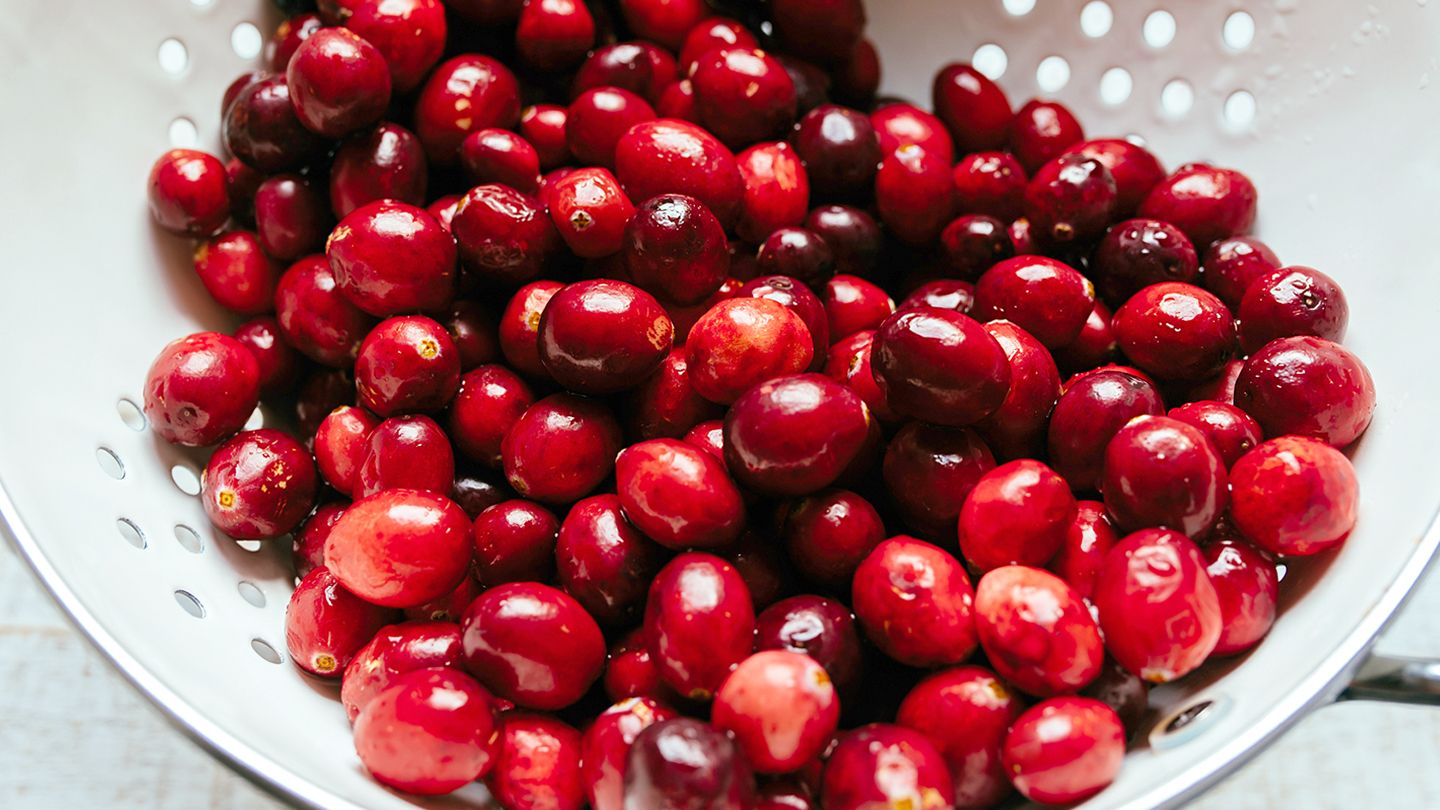Health Benefits of Cranberries
What are the health benefits of cranberries?
Cranberries offer several health benefits due to their unique nutrient profile and bioactive compounds. Here are some key health benefits of cranberries:
- Rich in Antioxidants: Cranberries are rich in antioxidants, such as flavonoids, phenolic acids, and vitamin C, which help protect the body from oxidative stress and reduce the risk of chronic diseases like heart disease, cancer, and neurodegenerative disorders such as Alzheimer’s disease or Parkinson’s disease.
- Urinary Tract Health: Cranberries contain compounds called proanthocyanidins, which may help prevent urinary tract infections (UTIs) by preventing bacteria, such as E. coli, from adhering to the urinary tract lining.
- Digestive Health: The fiber content in cranberries helps promote healthy digestion and may reduce the risk of constipation. Cranberries also contain compounds that may help promote the growth of beneficial gut bacteria.
- Heart Health: The antioxidants and anti-inflammatory compounds in cranberries may help reduce the risk of heart disease by lowering cholesterol levels, reducing blood pressure, and improving overall heart health.
- Cancer Prevention: Some studies suggest that the antioxidants in cranberries may help reduce the risk of certain types of cancer, including breast cancer, colorectal cancer, and prostate cancer, by protecting cells from damage and inhibiting the growth of cancer cells.
- Anti-Inflammatory Effects: Cranberries contain anti-inflammatory compounds, which may help reduce inflammation in the body and alleviate symptoms of inflammatory conditions like arthritis.
- Immune System Support: The vitamin C content in cranberries helps support the immune system and may help reduce the duration and severity of colds and other respiratory infections.
- Dental Health: Some studies suggest that the proanthocyanidins in cranberries may help prevent plaque formation on teeth and reduce the risk of gum disease.
- Skin Health: The antioxidants in cranberries may help protect the skin from damage caused by UV radiation and environmental pollutants, reducing the signs of aging and promoting overall skin health.
- Weight Management: Cranberries are low in calories and high in fiber, making them a good choice for weight management. The fiber content helps promote feelings of fullness, which may help prevent overeating.
Incorporating cranberries into your diet, whether fresh, dried, or as a juice, can provide these health benefits and contribute to overall health and well-being.
What are the health risks of cranberries?
While cranberries offer several health benefits, there are some potential risks associated with their consumption, especially when consumed in large amounts or in certain forms. Here are some potential health risks of cranberries:
- Kidney Stones: Cranberries contain oxalates, which are compounds that can contribute to the formation of kidney stones in susceptible individuals. Consuming large amounts of cranberry juice or supplements may increase the risk of kidney stone formation, especially in those with a history of kidney stones.
- Interaction with Medications: Cranberries and cranberry products may interact with certain medications, including blood thinners (such as warfarin) and medications that are broken down by the liver. Cranberries contain compounds that can affect the metabolism of these medications, potentially increasing or decreasing their effectiveness.
- Gastrointestinal Issues: Some individuals may experience digestive issues such as stomach upset, diarrhea, or bloating after consuming cranberries or cranberry products, especially in large amounts or if they have a sensitivity to acidic foods.
- Allergic Reactions: While rare, some individuals may be allergic to cranberries or cranberry products, experiencing symptoms such as itching, swelling, hives, or difficulty breathing. Allergic reactions to cranberries can be serious and require immediate medical attention.
- Added Sugars: Many commercially available cranberry products, such as cranberry juice cocktails, contain added sugars to improve taste. Consuming these products regularly may contribute to weight gain, tooth decay, and other health issues associated with excessive sugar intake.
- Pesticide Residues: Conventionally grown cranberries may contain pesticide residues, which can pose a health risk if consumed in large amounts over time. Washing cranberries and choosing organic varieties can help reduce pesticide exposure.
- Potential for Contamination: Like other fruits, cranberries can be contaminated with bacteria, such as E. coli or Salmonella, which can cause foodborne illnesses. It’s important to wash cranberries thoroughly and handle them properly to reduce the risk of contamination.
Overall, while cranberries can be a nutritious addition to a balanced diet, it’s important to consume them in moderation and be aware of potential risks, especially if you have specific health conditions or allergies. If you have any concerns about consuming cranberries, consult with a healthcare provider.




